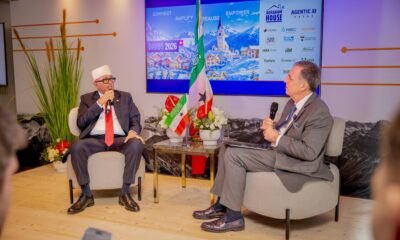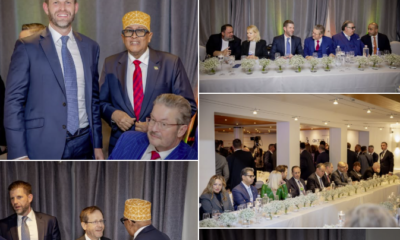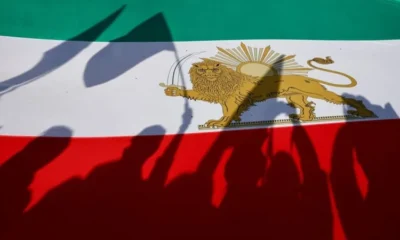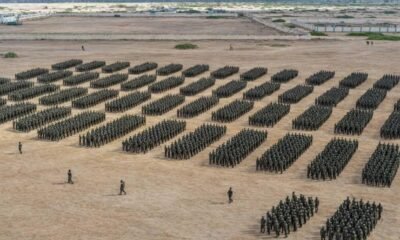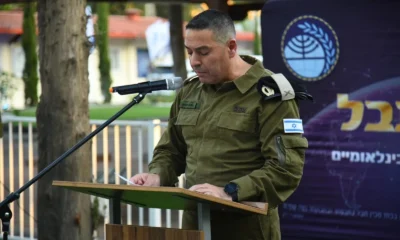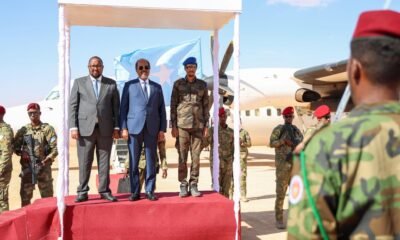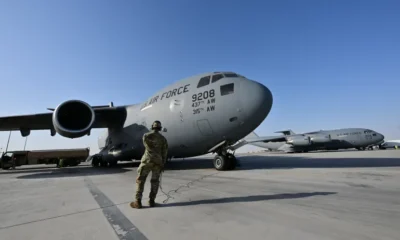Analysis
Decades of Espionage: How Israel’s Intelligence Network Crippled Hezbollah
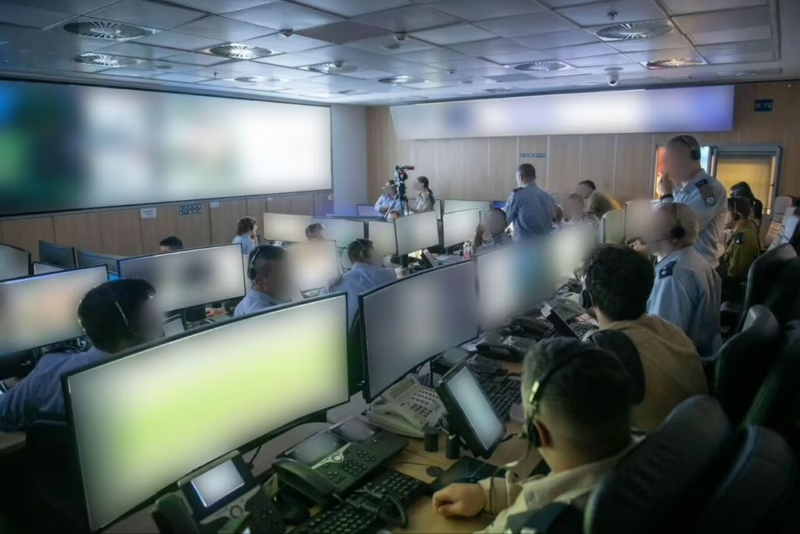
Israeli spies infiltrated Hezbollah for decades, culminating in Hassan Nasrallah’s assassination and the decimation of the terror group’s operations.
Israel’s decades-long infiltration of Hezbollah stands as one of the most meticulously executed intelligence campaigns in modern history. The New York Times investigation uncovers the deep reach of Israel’s espionage into the ranks of the Lebanese terror group, culminating in the assassination of Hassan Nasrallah and the dismantling of critical Hezbollah operations. This extensive network, built through years of methodical intelligence gathering, reshaped the balance of power in the Middle East and weakened Iran’s regional influence.
The campaign against Hezbollah was rooted in operations conducted during and after the 2006 Lebanon War, which laid the groundwork for Israel’s ability to infiltrate the group. Early successes included planting tracking devices on Hezbollah’s Fajr missiles, which enabled precision strikes on hidden munitions sites during the war. The Mossad subsequently expanded its reach, recruiting human sources within Hezbollah who provided critical information about secret facilities, hideouts, and weapons caches.
In 2012, a breakthrough by Israel’s Unit 8200 revealed a trove of intelligence, including the exact locations of Hezbollah leaders, their hideouts, and missile batteries. This unprecedented access provided Israel with the confidence to dismantle Hezbollah’s retaliatory capabilities in preparation for potential military action against Iran. Over time, Israel’s “target portfolios” grew from 200 to tens of thousands, signaling the extent of their penetration into Hezbollah’s infrastructure.
One of the most audacious operations involved explosive pagers planted among Hezbollah operatives. While the devices offered unparalleled insight into the group’s activities, concerns arose in late 2023 when Hezbollah technicians suspected tampering and sent the devices to Iran for inspection. This prompted Israel to preemptively detonate the pagers, crippling thousands of Hezbollah operatives and signaling the beginning of a campaign that ended with Nasrallah’s assassination.
Nasrallah, a figure synonymous with Hezbollah’s defiance of Israel, underestimated the extent of Israeli surveillance. Despite warnings from his aides to relocate, he dismissed the possibility of an Israeli strike, unaware that his every move had been tracked for years. The strike not only eliminated Hezbollah’s leader but also shattered the group’s operational capabilities and dealt a blow to Iran’s ambitions in the region.
Israeli intelligence efforts extended beyond direct attacks, influencing broader geopolitical shifts. By neutralizing Hezbollah, Israel disrupted Iran’s regional strategy, weakened the Iran-led axis, and contributed to the fall of Bashar al-Assad’s regime in Syria. These actions reshaped the dynamics of the Middle East, reducing the immediate threat posed by Hezbollah while buying time to address future challenges.
However, experts caution that Hezbollah’s resilience cannot be underestimated. Brigadier General Shimon Shapira notes that Hezbollah remains committed to rearming and rebuilding, with its raison d’être tied to its conflict with Israel. The group’s ability to recover and adapt underscores the necessity of sustained vigilance and intelligence efforts.
Israel’s decades-long infiltration of Hezbollah serves as a testament to the power of strategic intelligence operations. By embedding spies, leveraging advanced technology, and capitalizing on human sources, Israel dismantled one of its greatest adversaries from within. This campaign not only neutralized immediate threats but also set a precedent for the critical role of intelligence in modern conflict.
As the Middle East continues to evolve, the lessons from this extraordinary campaign offer insights into the challenges and opportunities of countering state-sponsored terror groups in a complex geopolitical landscape.
Analysis
Inside the Growing Campaign to Remove Trump
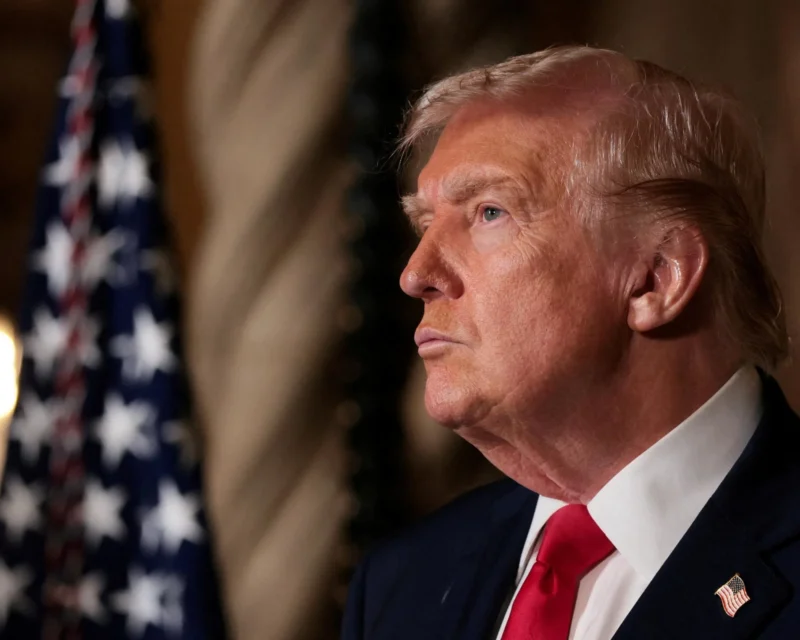
Trump Under Siege Again: Why Impeachment Talk Is Rising Again in America And The Return of America’s Impeachment Wars.
Less than a year into Donald Trump’s second term, the word “impeachment” has re-entered Washington’s bloodstream. Once again, America finds itself locked in a familiar cycle: a president governing through confrontation, institutions straining under political pressure, and an opposition searching for constitutional leverage.
What makes this moment different from Trump’s first presidency is not the rhetoric — it is the shifting coalition behind it.
The push to remove Trump is no longer confined to Democrats and progressive activists. A growing number of conservative figures, right-wing commentators, and former Trump allies have begun distancing themselves from a presidency they now describe as destabilizing rather than disruptive in a productive sense. Public petitions, legal appeals, and activist campaigns are multiplying, feeding a narrative that Trump’s leadership has crossed from controversial into dangerous.
Yet the constitutional reality remains unforgiving. Removing a sitting U.S. president is not driven by online petitions or street protests, but by numbers in Congress. Impeachment begins in the House of Representatives and requires only a simple majority. But removal demands a two-thirds supermajority in the Senate — a threshold that has never been reached against a president in American history.
Trump, already the only president to be impeached twice, understands this arithmetic well. His warnings to Republicans about the importance of the 2026 midterms are not rhetorical flourishes. They are survival strategy. If Democrats regain control of Congress, impeachment becomes politically possible — though still far from guaranteed.
What is fueling this renewed pressure is not a single scandal but a pattern. Trump’s aggressive foreign policy posture, bruised alliances in Europe, escalating disputes over trade and security, and his readiness to bypass traditional diplomatic channels have unsettled even some longtime supporters. His recent confrontations over Greenland, tariffs, and NATO cooperation have deepened concerns that the presidency is being used less as a stabilizing force and more as a geopolitical battering ram.
Domestically, Trump’s sweeping executive actions and unapologetic centralization of power have revived old fears about democratic erosion. Critics argue that while the system remains intact, the norms that sustained it are under sustained stress.
Still, impeachment remains more political theater than imminent outcome.
History offers sobering perspective. Andrew Johnson, Bill Clinton, and Trump himself were impeached — none removed. Richard Nixon resigned only when bipartisan collapse made survival impossible. Today’s America is far more polarized than Nixon’s era, making such bipartisan convergence exceedingly rare.
The campaign against Trump, therefore, is less about removing him tomorrow and more about defining the battlefield for 2026. It is about shaping public opinion, weakening institutional alliances, and preparing the ground should political winds shift.
In that sense, impeachment talk is not yet a constitutional crisis — but it is a political warning signal.
Trump may well finish his term. But the noise surrounding his presidency is no longer just opposition. It is the sound of a system testing its own limits — again.
Analysis
Syria Is Not One War — It’s Four Fronts Colliding at Once
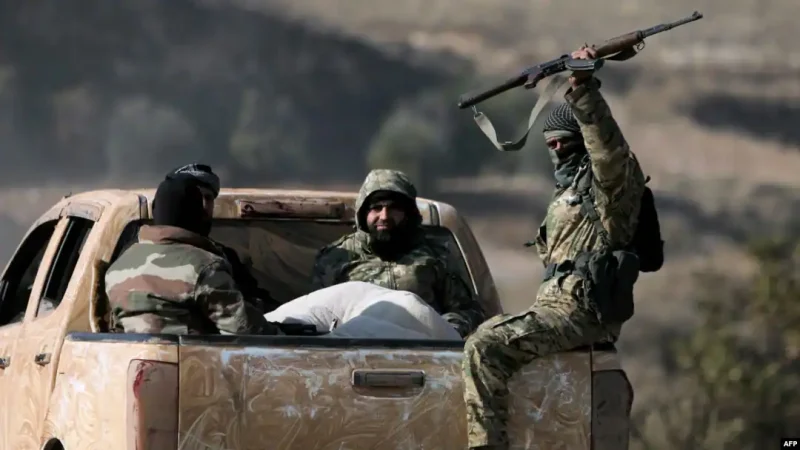
Who Controls Syria Today and Why Fighting Between Damascus and the Kurds Is Escalating.
The latest fighting in Syria is often described as a simple clash between the new government in Damascus and Kurdish forces. That framing is convenient — and dangerously incomplete. What is unfolding is not a single conflict, but a collision of unfinished wars, rival governance models, and unresolved regional agendas.
Syria today is a fractured state in both territory and authority.
The Syrian Democratic Forces (SDF) still control most of eastern Syria, including large parts of Hasakah, Raqqa countryside, and areas along the Euphrates. Though Kurdish-led, the SDF is a multi-ethnic force built with U.S. backing to defeat ISIS. Its military backbone comes from the YPG and YPJ, groups that proved decisive against ISIS but remain toxic in Ankara due to their historical ties to the PKK. This alone guarantees permanent tension with Turkey — and by extension, with any Syrian government aligned with Ankara.
Civilian governance in the east is handled by DAANES, a heavily Kurdish, left-leaning administration that functions as a de facto one-party system. While relatively stable, it lacks international recognition and faces growing pressure from Arab tribes who feel marginalized — a fault line now being actively exploited.
On the other side stands the Syrian Transitional Government (STG), born from the rapid collapse of the Assad regime after Hayat Tahrir al-Sham’s lightning offensive in late 2024. Under Ahmed al-Shara’a, HTS rebranded from jihadist insurgency into state power almost overnight. Damascus, Aleppo, Homs, and Hama are now firmly under STG control, backed by Sunni Arab support, Turkish influence, Gulf funding, and quiet U.S. engagement.
But legitimacy remains fragile.
The STG has clashed with Alawites in Latakia, Druze in Suwayda, and Kurds in Aleppo, reinforcing fears among minorities that Damascus is replacing Assad-era centralism with a new Sunni-dominated order. Promised integration of the SDF into a national army collapsed, and armed confrontation filled the vacuum.
Turkey still controls pockets of northern Syria through proxy forces. The Druze run Suwayda as a closed autonomous zone. Israel holds a buffer near the Golan. No single actor governs Syria — they merely manage pieces of it.
The most dangerous shift now lies east of the Euphrates. Arab tribes along the river valley are realigning toward Damascus, threatening to peel away SDF-held territory from within. This region has long been a corridor for ISIS, militias, and foreign interference. If it ignites again, the conflict will not stay local.
In short, Syria’s war continues because the state was rebuilt without consensus. Damascus seeks unity through force. The Kurds seek survival through autonomy. Regional powers see opportunity, not reconciliation. Until those equations change, Syria will remain divided — not by borders, but by unresolved power.
Analysis
Why Putin Is Silent on Maduro’s Abduction—and the Limits of Putin’s Power
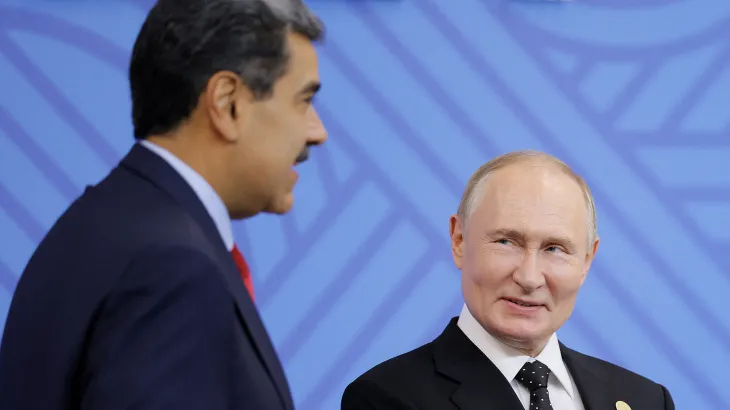
LEFT BEHIND: How Maduro’s Capture Exposed the Limits of Putin’s Power—and What It Reveals About a Shifting World Order.
When U.S. forces dragged Venezuela’s Nicolás Maduro from his bedroom and flew him to New York to face drug-trafficking charges, Moscow issued a ritual protest. President Vladimir Putin, however, said nothing. For a leader who prides himself on loyalty to allies and defiance of American power, the silence was striking—and revealing.
On Russian social media, the irony spread fast. A viral meme paired Putin’s oft-repeated line, “We don’t give up on our own,” with photographs of leaders he once called key allies: Muammar Gaddafi, dead; Viktor Yanukovych, exiled in Russia; Bashar al-Assad, toppled and flown to Moscow in 2024; and now Maduro, captured by U.S. commandos. The message was blunt: allegiance to Moscow offers no guarantee of rescue.
Russia’s foreign ministry condemned the operation as an “unacceptable act of armed aggression.” But Putin’s refusal to echo even that language underscores a cold calculation. Moscow’s defense pact with Caracas was deliberately vague, offering no automatic military response. And the Venezuelan alliance, long more symbolic than strategic, was never worth a direct confrontation with Washington.
Analysts say the fallout cuts two ways. “Putin’s prestige took a hit,” said Alisher Ilkhamov, a London-based Central Asia analyst. “Maduro was Russia’s most loyal partner in Latin America.” Yet the loss may be outweighed by a larger prize: a world order increasingly shaped by force rather than law—an environment Russia believes favors its own ambitions in Ukraine and across the former Soviet space.
Some observers suspect Maduro was quietly written off months ago. After last summer’s Anchorage summit between Trump and Putin, speculation grew that the two leaders discussed informal spheres of influence. The logic is transactional: Washington asserts dominance in the Western Hemisphere; Moscow demands latitude closer to home. Trump’s parallel push to acquire Greenland and expand U.S. access to Arctic energy routes only reinforces that reading.
Russia may even see economic opportunity ahead. As its mature oilfields decline, the massive Bazhenov shale formation in western Siberia looms large. U.S. firms possess the technology Russia lacks. In this view, tolerating Maduro’s fall could smooth future cooperation—while keeping China at bay from strategic energy assets.
There is also fear in the Kremlin. The speed and precision of Maduro’s capture exposed a vulnerability every autocrat understands. “What terrifies Putin most is that someone close to Maduro leaked his whereabouts,” said Galiya Ibragimova of the Carnegie Endowment. The likely response, she argues, is tighter security and deeper paranoia—not rapprochement with Trump.
Publicly, pro-Kremlin voices are spinning the episode as proof of Western “imperialism” destined to fail. Privately, the lesson is harsher. Russia did not intervene for Assad. It did not intervene for Maduro. Silence, in this case, is not indifference—it is strategy.
And for Moscow’s remaining partners, it is also a warning.
Analysis
How Riyadh and Abu Dhabi’s Quiet War Is Redrawing the Region
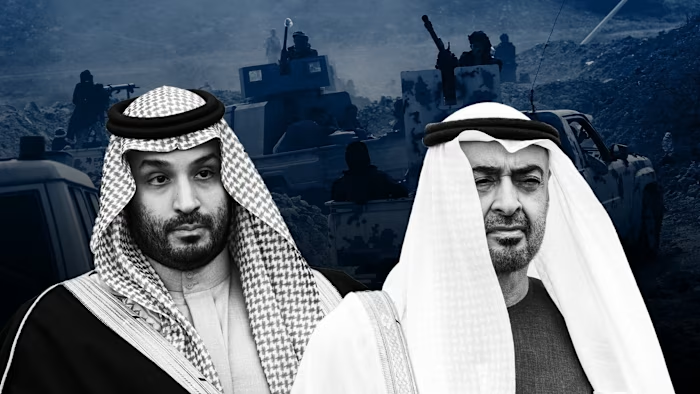
Saudi Arabia–UAE Rift Signals a Deeper Power Struggle Reshaping the Middle East.
Saudi Arabia’s unusually blunt accusation that the United Arab Emirates is undermining its national security marks a turning point in one of the Middle East’s most consequential alliances. What was once a tightly coordinated partnership is now openly strained, exposing a deeper struggle over power, influence and regional order that extends far beyond a single dispute.
At the center of Saudi anxiety is geography. Yemen and Sudan sit uncomfortably close to the kingdom’s borders and maritime lifelines, and Riyadh views instability in either as an existential threat. The UAE, by contrast, approaches both theaters through a different lens: maritime security, trade routes and influence across the Red Sea and the Horn of Africa. That divergence has transformed former coordination into competition.
The immediate trigger was Yemen. When the UAE-backed Southern Transitional Council seized large parts of southern Yemen late last year, expelling Saudi-aligned forces, Riyadh interpreted the move not as counterterrorism, but as a direct challenge to its primacy on its southern flank. Saudi airstrikes on a UAE-linked shipment, and public calls for Emirati withdrawal, signaled that the kingdom was prepared to enforce red lines it once assumed were shared.
Sudan compounds the tension. Saudi Arabia fears that prolonged state collapse across the Red Sea could destabilize its western coast and shipping routes. Emirati engagement there, framed by Abu Dhabi as pragmatic influence and conflict management, is viewed in Riyadh as reckless entanglement with non-state actors — a charge Saudi Arabia once reserved for Iran. The irony is striking: as Tehran’s regional influence wanes, Gulf rivals are now directing similar accusations at one another.
This rift reflects a broader structural reality. Saudi Arabia sees itself as the indispensable pillar of Arab and Muslim leadership, a role it expects smaller Gulf states to acknowledge. The UAE, flush with wealth and global ambition, rejects that hierarchy. Over the past decade it has pursued an assertive, independent foreign policy — from Yemen to Libya, Sudan to Syria — and broken taboos by normalizing ties with Israel ahead of a Palestinian state. To Abu Dhabi, autonomy is survival; to Riyadh, it looks like overreach.
Yet neither side is likely to push the confrontation too far. Both sit astride critical energy chokepoints, anchor global oil markets and rely heavily on U.S. security guarantees. A serious rupture would unsettle investors, roil energy prices and complicate relations with Washington at a moment when both capitals are competing for American favor.
The more likely outcome is a colder, more transactional relationship: sharper economic competition, proxy maneuvering in fragile states, and rival narratives pitched to the White House. The Saudi–UAE alliance is not collapsing — but it is being renegotiated.
What has emerged is a new Gulf reality: unity is no longer assumed, leadership is contested, and stability itself has become the ultimate currency.
Analysis
Why China Is Studying Trump’s Venezuela Shock — and What It Means for Taiwan
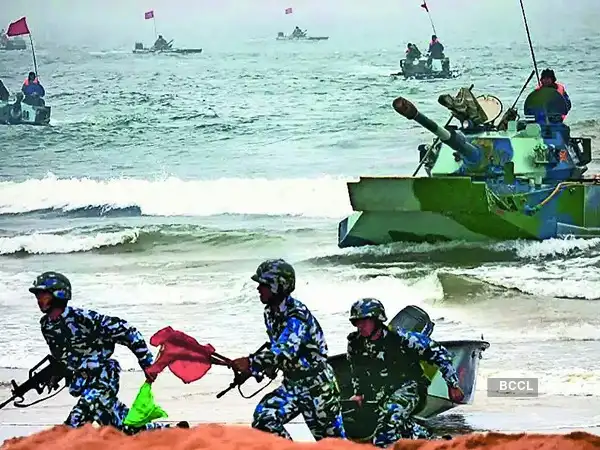
CARACAS TODAY, TAIPEI TOMORROW? China Condemns U.S. Strike on Venezuela as Taiwan Watches Closely for Strategic Fallout.
Hours before Nicolás Maduro was seized by U.S. forces, the Venezuelan leader was hosting a senior Chinese delegation in Caracas. Photographs posted on his own Instagram showed Maduro smiling alongside Qiu Xiaoqi, Beijing’s special representative for Latin American and Caribbean affairs — an image that, in hindsight, feels like a geopolitical freeze-frame taken just before the ground shifted.
Beijing has been quick to condemn Washington’s action. China’s state-run Xinhua news agency denounced the operation as “naked hegemonic behavior,” arguing that the so-called “rules-based international order” championed by the United States is little more than a predatory system designed to serve American interests. The Chinese foreign ministry has so far declined to clarify the whereabouts of its delegation following the strike.
The episode lands at an especially sensitive moment for China. Just days earlier, the People’s Liberation Army wrapped up its largest-ever military exercises around Taiwan, rehearsing scenarios that analysts say were meant to demonstrate Beijing’s ability to isolate the island in a crisis. The timing has inevitably raised a provocative question across Asia: does Trump’s dramatic action in Venezuela lower the threshold for force elsewhere?
Most China watchers say no — at least not immediately.
“Taking over Taiwan depends on China’s still-developing military capability, not on what Trump did on a distant continent,” said Shi Yinhong, a professor of international relations at Renmin University. Others note that Beijing has long framed Taiwan as an internal matter, unlike Venezuela, which sits firmly outside China’s core territorial claims.
Neil Thomas of the Asia Society argues that Beijing is more likely to exploit the optics than imitate the act. China, he said, will contrast itself with Washington, portraying the U.S. as reckless and imperial while presenting President Xi Jinping as a responsible global leader. From Beijing’s perspective, the ideal outcome is not escalation, but a prolonged U.S. entanglement in Latin America that drains American focus and credibility.
Taiwanese officials echo that assessment, but with an unmistakable edge of realism. Wang Ting-yu, a senior lawmaker on Taiwan’s foreign affairs and defense committee, dismissed comparisons outright. “China is not the United States, and Taiwan is certainly not Venezuela,” he wrote, arguing that if Beijing truly had the means to seize the island, it would have acted long ago.
Still, the symbolism matters. On Chinese social media, commentary praising Trump’s decisiveness surged, with some users openly urging Beijing to “learn” from Washington’s example. That narrative, analysts warn, could harden attitudes inside China over time, even if the military balance remains unchanged.
For Taipei, the message is more immediate. Trump’s willingness to use overwhelming force abroad reinforces both the value — and the volatility — of U.S. backing. Some observers expect Taiwan’s government to offer cautious, carefully worded support for Washington’s action, signaling alignment without endorsing regime change as a norm.
The deeper consequence may lie in perception. By acting unilaterally in Venezuela, the United States has handed Beijing a powerful rhetorical tool: proof, in China’s telling, that American power is arbitrary and self-serving. Whether or not China moves militarily, that argument will be deployed relentlessly in the information war over Taiwan.
Caracas may be far from the Taiwan Strait, but the shockwaves are traveling fast. In a world where precedent matters, even distant battles can reshape the logic of the next one.
Analysis
How a New Axis of Desperation Is Reshaping the Horn of Africa
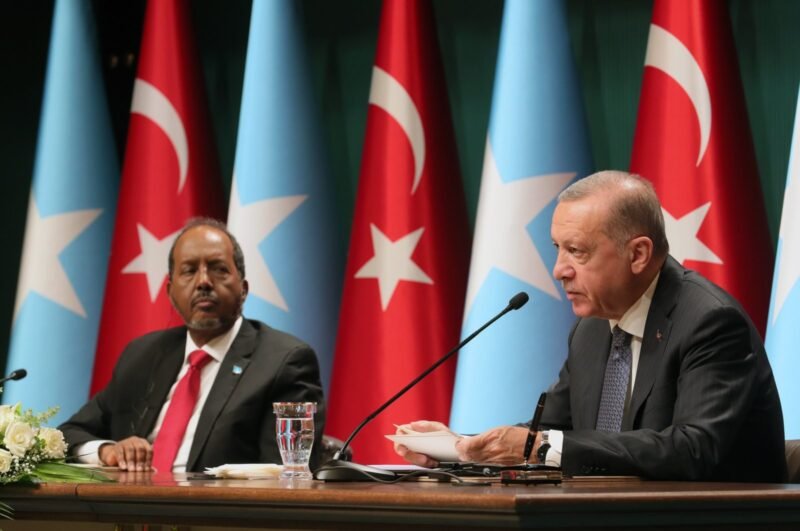
Mogadishu Trapped, Cairo Panics: The Horn Enters Its Most Dangerous Phase.
In just twenty-four hours, the geopolitical scaffolding that anchored Somalia’s relations with the Gulf for four decades has collapsed. What is emerging in its place is not a coherent regional order, but a volatile collision of rival ambitions—one that leaves Villa Somalia immobilized, while a desperate Cairo-Ankara alignment risks igniting the southern Red Sea.
At the center of the storm sits President Hassan Sheikh Mohamud, caught in a zero-sum confrontation between Saudi Arabia and the United Arab Emirates. According to multiple intelligence-linked sources, Riyadh has issued an urgent request for Somalia to align itself with a new Yemen-focused coalition aimed at opposing southern forces. The demand echoes the coercive dynamics of 2015, when Mogadishu joined the Saudi-led war in Yemen in exchange for financial promises that were only partially fulfilled, if at all.
This time, however, the UAE is drawing a hard line. Abu Dhabi’s leverage over Mogadishu is not symbolic—it is structural. The Emirates bankroll and supply more than 15,000 Somali security personnel and inject roughly $12 million annually into the federal budget. That support gives the UAE an effective veto over Somali foreign policy. Complicating matters further, the president’s immediate family resides in the UAE, blurring the line between national decision-making and personal exposure.
Some Western intelligence assessments suggest advisors have even floated Egypt as a potential refuge to escape Emirati pressure—an idea that underscores the severity of the bind, even if it remains unconfirmed.
While attention has focused on diplomatic fallout from Israel’s recognition of Somaliland, a more consequential shift is unfolding behind the scenes. Egyptian President Abdel Fattah el-Sisi has moved decisively to militarize the southern Red Sea. Cairo has quietly finalized agreements enabling naval deployments to Eritrea and Somalia—an unmistakable signal that Egypt is reviving an assertive, almost imperial posture aimed at encircling Ethiopia and exerting control over the Bab el-Mandeb chokepoint.
Most striking is Cairo’s alignment with Turkey in condemning the Somaliland–Israel breakthrough. The irony is hard to miss. Sisi, who built his rule by crushing the Muslim Brotherhood, now finds himself tactically synchronized with Ankara’s Islamist-backed foreign policy—united not by ideology, but by fear of a shifting balance of power.
Egypt’s opposition to Somaliland recognition is not about Somali sovereignty or regional stability. It is about leverage. A weak, centralized Somalia has long served Cairo’s strategy of pressuring Ethiopia. A recognized Somaliland—stable, democratic, and strategically aligned with Israel and Ethiopia—punctures that approach.
Israel’s move has handed Addis Ababa diplomatic oxygen, undermining Egypt’s containment strategy at precisely the wrong moment.
The result is a region in transition and under strain. The Arab League is fractured. Gulf consensus is gone. Mogadishu is paralyzed by competing patrons, while Cairo reaches for military tools to compensate for diplomatic loss.
The Horn of Africa has crossed a threshold. The events of the past day are not a policy adjustment; they mark the opening chapter of a far more dangerous era—one defined by desperation, miscalculation, and the rapid erosion of old assumptions.
Turkey’s Expanding Footprint in Somalia Draws Parliamentary Scrutiny
Inside the Red Sea Forum: Saudi and Egyptian Power Play Marginalizes Ethiopia
Egypt, Eritrea Close Ranks on Red Sea Security as Ethiopia Eyes Sea Access
RED SEA SHOCKER: TURKEY’S PROXY STATE RISES—AND ISRAEL IS WATCHING
Is Somalia’s Oil the Price of Loyalty to Turkey? MP Blows Whistle on Explosive Oil Deal
Turkey Withheld Explosive Intelligence Linking Somali Officials to Terror Network
Turkey’s Military Presence in Somalia Compounds Somaliland’s Internal Turmoil
Somalia’s Silent War Gamble: UAE, Egypt, Sudan, Ethiopia All Set to Clash on Her Soil
Exclusive: Egypt Deploys Troops to Somalia—Next War Begins in the Horn
The Horn of Africa on the Precipice: Ethiopia-Egypt Conflict Looming
Analysis
Netanyahu to Trump: Only Fear of War Can Secure Peace
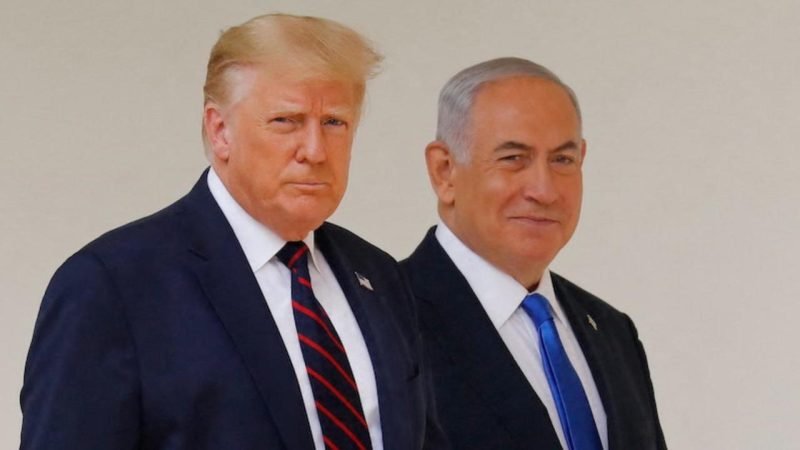
Israeli Prime Minister Benjamin Netanyahu arrives in Florida this week for a critical meeting with US President Donald Trump, seeking to convince him that diplomacy alone will not defeat Hamas, Hezbollah, or Iran—and that only the credible threat of renewed war can lock in peace.
The meeting at Mar-a-Lago, Netanyahu’s sixth with Trump this year, comes as the first phase of Trump’s 20-point Gaza plan reaches its limit. All living Israeli hostages have returned, aid is flowing into Gaza, and the ceasefire is holding—barely. Hamas attacks on IDF troops, Israeli retaliation, and Hamas’s deliberate delays in returning bodies have exposed what Israel sees as the core problem: Hamas has no intention of disarming.
Trump and his advisers believe momentum is the key—keep the process moving, and Hamas will weaken over time. Israel disagrees. Netanyahu plans to argue that without a firm deadline for Hamas to lay down its weapons, the terror group will regroup, rearm, and prepare the next war under the cover of diplomacy.
At the center of Netanyahu’s pitch is a blunt warning: the proposed international stabilization force would not deter Hamas. No country wants to send troops that might actually fight, and contributions from hostile states like Turkey or Pakistan could give Hamas political and military cover to rebuild. Israel wants Trump to set a clear ultimatum—disarm or face a full-scale IDF offensive.
Netanyahu will frame the moment as decisive for Trump’s top envoys, Steve Witkoff and Jared Kushner: they can be remembered either as the architects who dismantled Hamas or as the negotiators who were outmaneuvered, leaving Gaza primed for another bloodbath.
The challenge is steep. Netanyahu no longer has his key Trump-whisperer Ron Dermer at his side, and reports suggest fatigue with Netanyahu inside Trump’s inner circle. Axios has claimed some US advisers believe the Israeli leader is sabotaging the peace process.
Beyond Gaza, Netanyahu is also pressing Trump on Hezbollah and Iran. The US deadline for Hezbollah’s disarmament expires at year’s end, and Washington has already signaled it will back Israeli escalation if the group refuses. On Iran, Netanyahu wants close coordination on timing and tactics should another strike become necessary, while offering Trump concessions elsewhere—possibly easing Israel’s posture toward Syria’s new regime.
Ceasefires freeze reality; they don’t change it. Netanyahu believes Israel may need to return to the battlefield—in Gaza, Lebanon, and possibly Iran—to create the conditions for lasting peace. Trump prefers diplomacy. This week, the two leaders must decide whether peace in the Middle East will be enforced by agreements—or by fear of what happens when those agreements fail.
Analysis
RED SEA SHOCKER: TURKEY’S PROXY STATE RISES—AND ISRAEL IS WATCHING

Why Somaliland Now Matters More Than Ever in the Red Sea Strategic Equation.
Turkey’s expanding footprint in Somalia is often framed as humanitarian partnership or infrastructure development. In reality, Ankara is constructing a shadow strategic order—one that uses Somalia as an offshore extension of Turkish power, giving President Recep Tayyip Erdoğan a launch corridor at one of the world’s most sensitive maritime choke points.
Under the banner of development, Turkey now trains thousands of Somali soldiers, operates the country’s central airport and port under long-term concessions, runs its flagship national hospital, and controls financial channels through Ziraat Katılım—the first foreign bank in Somalia in more than 50 years.
This is not philanthropy; it is leverage. Somalia receives security and infrastructure. Turkey receives coastline, deniability, and strategic depth.
While global headlines fixate on Houthi attacks in the Red Sea or Iran’s regional ambitions, the more decisive shift is unfolding quietly in Somalia. A NATO member is projecting power across the Horn of Africa in ways the alliance cannot monitor, Europe cannot shape, and the U.S. has been slow to recognize.
Turkey is building a second strategic geography: offshore, insulated from oversight, and designed to test capabilities that would be politically and legally constrained within NATO’s traditional framework.
Somalia is the laboratory. The Gulf of Aden–Red Sea corridor is the theatre.
Turkey’s missile-testing initiatives in Somalia—confirmed in Greek reporting by Marinos Gasiamis—are not tactical experiments but a foundational piece of Erdoğan’s long-term architecture.
This fits a decade-long pattern: nuclear infrastructure with ambiguous Russian clauses, quiet cooperation with Pakistan’s nuclear and missile expertise, exploratory uranium routes in Africa, and now a politically shielded African coastline from which missile doctrine can evolve without scrutiny.
If Turkey ever crosses the nuclear threshold, the balance that underpins deterrence from the Aegean to the Gulf would fracture.
The systems Ankara could test or deploy from Somali territory would outrun early-warning grids that regional states rely on—forcing a security recalculation across the Middle East and Africa.
None of this works without a compliant host. Somalia sold the keys.
Through bases, concessions, doctrinal influence, and total dependency, Turkey has created a model of “parallel sovereignty.” Somalia’s army, airports, ports, and financial arteries now run through Ankara.
This mirrors the Libyan playbook: enter through crisis, remain through law, cement through dependency.
But the Red Sea corridor is more volatile. Iran’s Houthi proxies close the strait with missiles; Turkey deepens its presence on the opposite shore; Iran gains reach; Turkey gains flexibility; and Europe loses the ability to distinguish cause from consequence.
A proxy system does not require coordination—just overlapping interests.
Israel, observing this map, is not blind. The flight distance from Israeli airbases to Mogadishu is comparable to its proven operational reach into Iran. Somalia is not beyond Israel’s horizon nor its doctrine of preemptive strike. Silence should not be misread as comfort.
But the Horn of Africa has two coastlines—and only one is behaving like a sovereign state.
Somaliland, despite lacking formal recognition, stands as the counter-model: self-governing, democratic, and strategically positioned. Unlike Mogadishu, it has not leased its coastline to foreign ambitions.
Berbera, upgraded with UAE investment, now hosts early-warning systems acquired with third-party approval from Israel—quiet confirmation that the region’s strategic planners recognize Somaliland as an anchor of stability.
Recognition of Somaliland is not a moral gesture; it is a strategic correction. As Somalia becomes a proxy corridor for outsourced sovereignty, Somaliland remains the last intact coastline on the Red Sea route not absorbed into someone else’s strategic design.
The choice facing the international system is urgent: strengthen the only democratic, stable governance structure in the Horn—or watch Turkey’s shadow geography consolidate in silence until it becomes a permanent fact.
In a corridor shaped by speed and opportunism, hesitation is a decision in itself, and one that increasingly benefits Ankara.
-

 Analysis11 months ago
Analysis11 months agoSaudi Arabia’s Billion-Dollar Bid for Eritrea’s Assab Port
-

 Opinion17 years ago
Opinion17 years agoSomaliland Needs a Paradigm Change: Now or Never!
-

 Interagency Assessment1 month ago
Interagency Assessment1 month agoTOP SECRET SHIFT: U.S. MILITARY ORDERED INTO SOMALILAND BY LAW
-
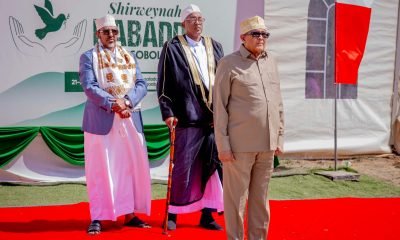
 Somaliland3 months ago
Somaliland3 months agoSomaliland Recognition: US, UK, Israel, and Gulf Bloc Poised for Historic Shift
-

 EDITORIAL1 year ago
EDITORIAL1 year agoDr. Edna Adan Champions the Evolving Partnership Between Somaliland and Ethiopia
-
Top stories2 years ago
Ireland, Norway and Spain to recognize Palestinian state
-

 Russia-Ukraine War6 months ago
Russia-Ukraine War6 months agoFibre-Optic Drones Shift Ukraine’s Drone Warfare
-

 ASSESSMENTS10 months ago
ASSESSMENTS10 months agoOperation Geel Exposes the Truth: International Community’s Reluctance to Embrace Somaliland as a Strategic Ally




